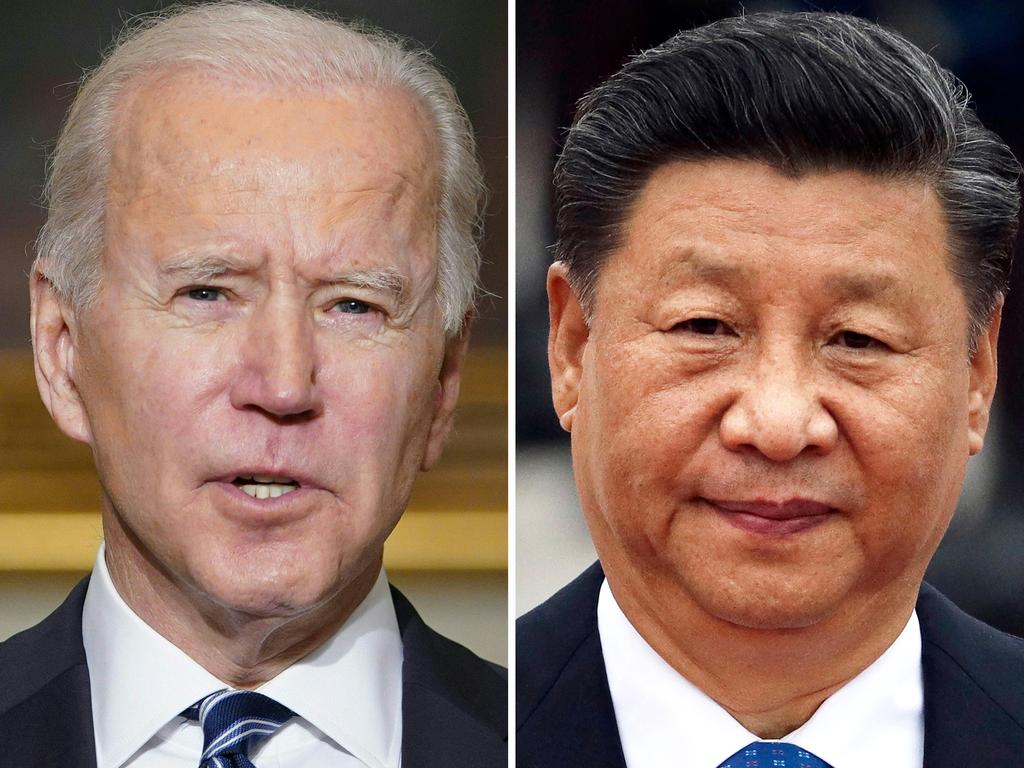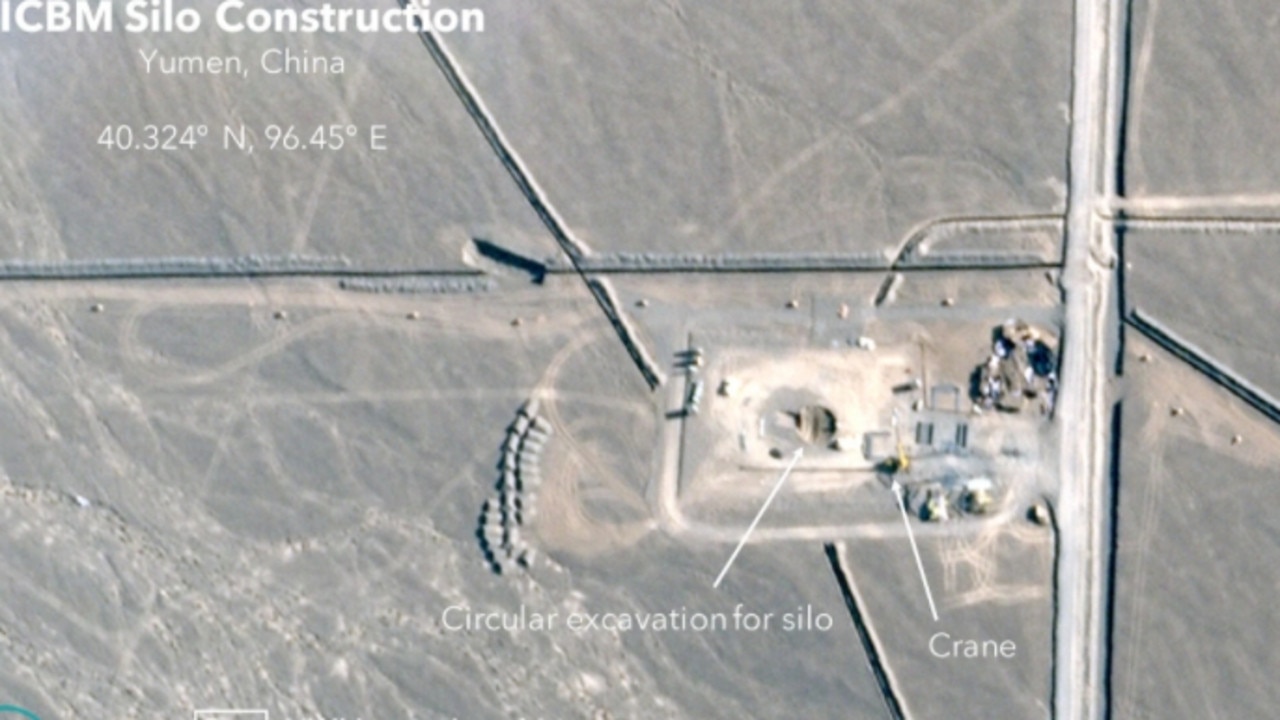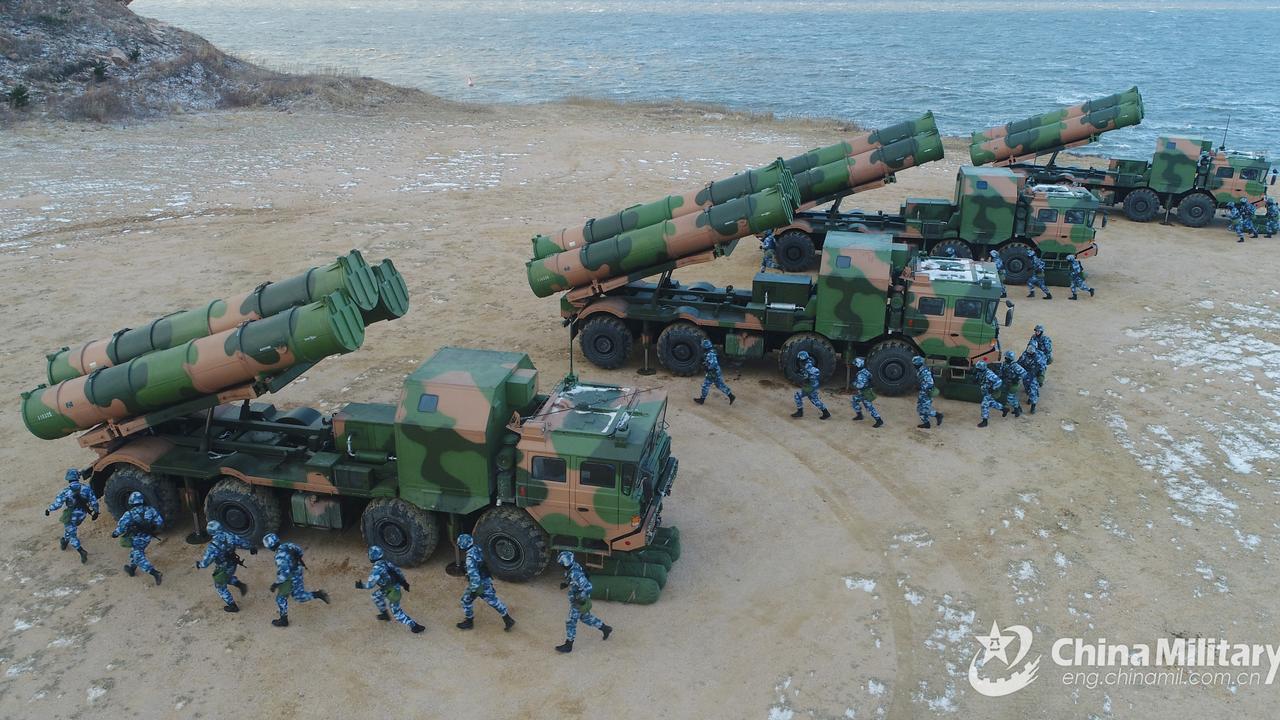US-China war over Taiwan could escalate quickly to nuclear
US President Joe Biden has vowed to protect Taiwan from China but there are fears it could “escalate quickly” with apocalyptic consequences.
US President Joe Biden says he won’t go to war with Russia over Ukraine because it’s a nuclear power.
But he insists he will fight China over Taiwan. Analysts say that has apocalyptic implications.
A recent set of war games conducted by the Center for a New American Security (CNAS) demonstrated once again that any conflict between nuclear powers rapidly spirals out of control.
It’s a lose-lose scenario that sustained a tentative peace during the Cold War.
But Russian President Vladimir Putin has changed that dynamic.
He’s now using nuclear force as a shield behind which he beats up on his non-nuclear neighbours. Mr Putin has been quick to threaten strikes against anyone who dares to directly intervene in his invasion of Ukraine.
Stream more world news live & on demand with Flash. 25+ news channels in 1 place. New to Flash? Try 1 month free. Offer ends 31 October, 2022 >

The US and NATO have openly yielded – while rushing arms, ammunition and information to support Kyiv’s resistance effort.
But the spectre of “consequences you have never seen” still looms large over Europe as Russia’s bungled war places immense pressure on its autocratic leader.
Mr Biden, however, doesn’t share the same caution over Taiwan.
He’s repeatedly said he would order US forces to fight on Taipei’s behalf. Even though his White House staff unconvincingly rush in afterwards to reassure the world that Washington remains “ambiguous” over its intent to intervene actively.
Like Russia, China is also a nuclear power.
Its arsenal is small. But it’s still more than enough to rain down fire and fury upon the mainland US – and plunge the world into an apocalyptic crisis.

It's the potential chains of events that could lead to such mutually assured destruction that the CNAS war-games sought to unravel.
“Our recent war game – in which members of Congress, former government officials, and subject matter experts assumed the roles of senior national security decision-makers in China and the United States – illustrated that a US-Chinese war could escalate quickly,” it warns.
Trigger point
The year is 2027. China’s military modernisation and expansion are nearing completion. Its nuclear arsenal is in the middle of a major expansion. Its leader is desperate to justify his position of ultimate power by finishing what the 1949 civil war failed to do – seize Taiwan.
“If the Chinese Communist Party decides to invade the island, its leaders may not be able to accept failure without seriously harming the regime’s legitimacy,” argue CNAS analysts Stacie Pettyjohn and Becca Wasser.
“Thus, the CCP might be willing to take significant risks to ensure that the conflict ends on terms that it finds acceptable.”
When it comes to a fight over Taiwan, most of the cards are already in China’s favour.
It’s close. Combat aircraft can fly from mainland bases. Troop transports have only a narrow strait to cross. Its vulnerable lines of logistics – so effectively exploited by Ukraine over Russia – are short.
It’s the opposite scenario for the United States and any coalition forces. They must cross thousands of kilometres of open ocean. And the few island bases they have nearby are vulnerable to attack.
“If China opened up with everything they’ve got – their so-called carrier killer missiles, submarines and everything – it would be devastating,” says Centre for Strategic and International Studies (CSIS) analyst Dr Michael Green.
“And the US and probably Japan and Taiwan would take massive casualties. We’d lose a lot of ships. But so would China.”
Such a human and material may not be acceptable to either side. Which is where the temptation of coercive nuclear leverage comes in.
Like Moscow, Beijing may threaten a nuclear attack against the US if it intervenes.
It may then find its bluff called.
“Does China want to escalate to full nuclear war?” asks Dr Green. I’d seriously doubt it. So China’s strategy is to convince Japan and US, Europe, Australia, and especially Taiwan, that resistance is futile.”
China syndrome
Beijing is building three vast new nuclear missile silo fields under the deserts of Xinjiang. It’s also tested new hypersonic glide vehicles intended to manoeuvre nuclear warheads around any defences.
By 2030, China will have about 1000 nuclear warheads on call.
“Based on these projections, Chinese leaders may believe that as early as five years from now, the PLA will have made enough conventional and nuclear gains that it could fight and win a war to unify with Taiwan,” the CNAS analysts write.
Like Putin, Beijing will likely need a quick victory.
That would give it an incentive to strike military bases on US and allied territory.
In the war-games, this never turned out well.
“Both sides tried to walk a fine line by attacking only military targets,” the analysts say. “But such attacks crossed red lines for both countries, and produced a tit-for-tat cycle of attacks that broadened the scope and intensity of the conflict.”

In one scenario, China launched a pre-emptive nuclear attack on the US Pacific base on the island of Guam. The US retaliated by using nuclear weapons against a Chinese military port.
“Each side justified the initial blows as military necessities that were limited in nature and would be seen by the other as such,” CNAS notes.
But it didn’t turn out that way.
“Both sides perceived these strikes as attacks on their home territory, crossing an important threshold.”
A new world order
“One particularly alarming finding from the war game is that China found it necessary to threaten to go nuclear from the start in order to ward off outside support for Taiwan,” the CNAS wargamers note. “But China had difficulty convincing the United States that its nuclear threats were credible.”
Dr Green says this is the fundamental challenge of deterrence.
“So China’s strategy is not to use force, but to make us think that any fight would be futile,” he argues. “And so far, in a way, that’s not working. They’re steeling our resolve.
“And President Volodymyr Zelenskyy is helping in Ukraine to show what’s at stake.
“But that said, if we can’t maintain deterrence, we can’t make it too hard for them to invade.
“We want Beijing to think an invasion would not work. And there we’ve slipped behind the last decade or two.”
When it comes to the nuclear threat, Beijing doesn’t have the Cold War experience the US and Russia have.
It hasn’t been through a Cuban missile crisis or an Archer Able invasion scare.
“This may push China to pre-emptively detonate a nuclear weapon to reinforce the credibility of its warning,” argues CNAS.
In the war game, the US was confident its own large and diverse nuclear arsenal was enough to deter escalation and didn’t appreciate how serious the threat was.
“As a result, China felt it needed to escalate significantly to send a message that the US homeland could be at risk if Washington did not back down.”
And that, the CNAS analysts say, left Washington to choose defeat through de-escalation – or escalating itself.
“The clear lesson from the war game is that the United States needs to strengthen its conventional capabilities (and strategic and operational planning with key partners) in the Indo-Pacific to ensure that China never views an invasion of Taiwan as a prudent tactical move,” the CNAS report concludes.
Dr Green agrees that the peril is greater now than at any point since the end of the Cold War. “And we are looking at Xi Jinping now in a new light because of what Putin did. These authoritarian leaders may be willing to roll the dice. So it is a perilous time, although I do think the chances of an actual war are still low.”
Jamie Seidel is a freelance writer | @JamieSeidel






